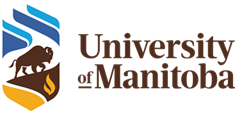Section 1.5 Further information
Subsection 1.5.1 How to succeed in this course
Here are some useful tips to help you succeed in this course:
Attend the lectures to understand both the theory and examples presented there.
Attend the tutorial labs where you will get additional examples and may ask questions about any problems you can't solve.
Do the problems that are assigned, and don't just look at the answers. The process of solving the problems is crucial to understanding them. Practice does make perfect!
-
At university, it is the responsibility of the student to master the material presented in the course. In particular, if you don't understand how to solve some of the exercises, you should get help.
The help centre (412 Machray Hall) is staffed all day by graduate students willing to help you.
Use your tutorial lab to get your questions answered.
Visit your prof during office hours or by appointment.
It is also helpful to go over problems with your fellow students. Usually both parties benefit from this interaction.
Keep up to date with the material. Don't put off looking at your notes or trying to solve the assigned problems. Getting any misunderstandings of the material cleared up early in the term makes for a better mathematical experience.
Subsection 1.5.2 Academic Honesty
The Department of Mathematics, the Faculty of Science and the University of Manitoba regard acts of academic dishonesty in quizzes, tests, examinations or assignments as serious offences and may assess a variety of penalties depending on the nature of the offence.
Acts of academic dishonesty include bringing unauthorized materials into a test or exam, copying from another student, plagiarism and examination personation. Students are advised to read section 7 (Academic Integrity) and section 4.2.8 (Examinations: Personations) in the “General Academic Regulations and Requirements” of the current Undergraduate Calendar. Note, in particular that cell phones and pagers are explicitly listed as unauthorized materials, and hence may not be present during tests or examinations.
Penalties for violation include being assigned a grade of zero on a test or assignment, being assigned a grade of F in a course, compulsory withdrawal from a course or program, suspension from a course/program/faculty or even expulsion from the University. For specific details about the nature of penalties that may be assessed upon conviction of an act of academic dishonesty, students are referred to University Policy 1202 (Student Discipline Bylaw) and to the Department of Mathematics policy concerning minimum penalties for acts of academic dishonesty.
The Student Discipline Bylaw is printed in its entirety in the Student Guide, and is also available on-line or through the Office of the University Secretary. Minimum penalties assessed by the Department of Mathematics for acts of academic dishonesty are available on the Department of Mathematics web-page. All Faculty members (and their teaching assistants) have been instructed to be vigilant and report incidents of academic dishonesty to the Head of the Department.
Subsection 1.5.3 Student Accessibility Services
If you are a student with a disability, please contact SAS for academic accommodation supports and services such as note-taking, interpreting, assistive technology and exam accommodations. Students who have, or think they may have, a disability (e.g. mental illness, learning, medical, hearing, injury-related, visual) are invited to contact SAS to arrange a confidential consultation.
